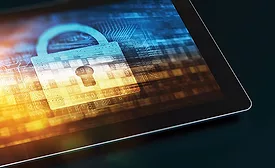Home » biometrics
Articles Tagged with ''biometrics''
Education & Training
Data Privacy Law and Intellectual Property Considerations for Biometric-Based AI Innovations
June 12, 2020
7 Essential Security Factors to Consider When Choosing Your Enterprise’s Messaging Platform
Messaging platforms are changing the way information is shared in the workplace. But that shouldn’t come at the risk of data breaches.
December 17, 2019
Sign-up to receive top management & result-driven techniques in the industry.
Join over 20,000+ industry leaders who receive our premium content.
SIGN UP TODAY!Copyright ©2026. All Rights Reserved BNP Media.
Design, CMS, Hosting & Web Development :: ePublishing











